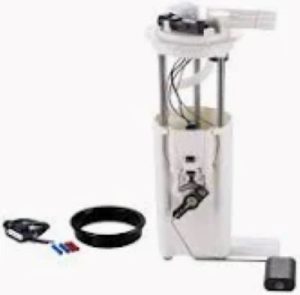Driving with a bad fuel pump is not allowing the engine to work properly and in worst case scenario, you might just get stranded. The fuel pump is responsible for delivering the fuel from the tank to the engine at clearly defined pressure. Should it begin to malfunction, the engine could not receive adequate fuel and may stall, hesitate or even lose power suddenly. A National Highway Traffic Safety Administration (NHTSA) study from 2021 found that fuel system failures which includes fuel pump failure accounted for around 7% of breakdowns on the road.
One of the most significant dangers of driving with a bad fuel pump is engine stalling, especially while driving on highways or while doing some hard acceleration actions. A car engine needs a stable source of fuel for it to work properly, and this is why the vehicle might stall on you out of the blue if the pump goes bad. But it can be especially hazardous in heavy traffic or on the highway under circumstances where quick loss of power could potentially cause an accident. If the engine doesn't stall, a weak fuel pump will likely cause poor acceleration, possibly making merging and overtaking acts dangerous.
A malfunctioning fuel pump can also initiate the check engine light. The high pressure fuel pump is commanded by your engine control unit (ECU) based on input information gathered and operation checked at the factory and from sensors in your car. Should it find anything wrong with the amount of actual fuel pressure that is in or going to the rail, it dumps a diagnostic trouble code into permanent memory along with P0087 (Pressure too low/rail/system fault) or even the ever-popular P0230 (Fuel Pump Primary Circuit Fault). A small change in these codes can reveal that the fuel pump is not able to deliver the required pressure correctly for efficient and safe engine operation.

When you keep driving around with a bad fuel pump, it can eventually cause even more serious engine problems. Should the fuel pump stop working entirely, it could lead to your engine running out of gas altogether and potentially overheating, misfiring, or harming important parts such as the catalytic converter. As of 2020, AAA estimated the cost of replacing a catalytic converter at between $900 and $2,500. By comparison, replacing a bad fuel pump usually costs between $400-$600, depending on the car line.
As automotive Guru and Tesla CEO Elon Musk famously replied "the key to safe & reliable transport is making sure every single one of even the tiny systems are working correctly." It may not sound too serious of a problem, but over time it can turn into a safety risk if left alone.
So, there you have it: Driving with a Bad Fuel Pump Isn't Safe Stalling or Power Loss May HappenEngine Damage MAY Occur Here, we discuss why it is imperative to take care of fuel pump problems immediately to help you avoid an expensive repair and keep yourself safe while driving. If you want to learn more on how to diagnose or replace your fuel pump is at Fuel Pump